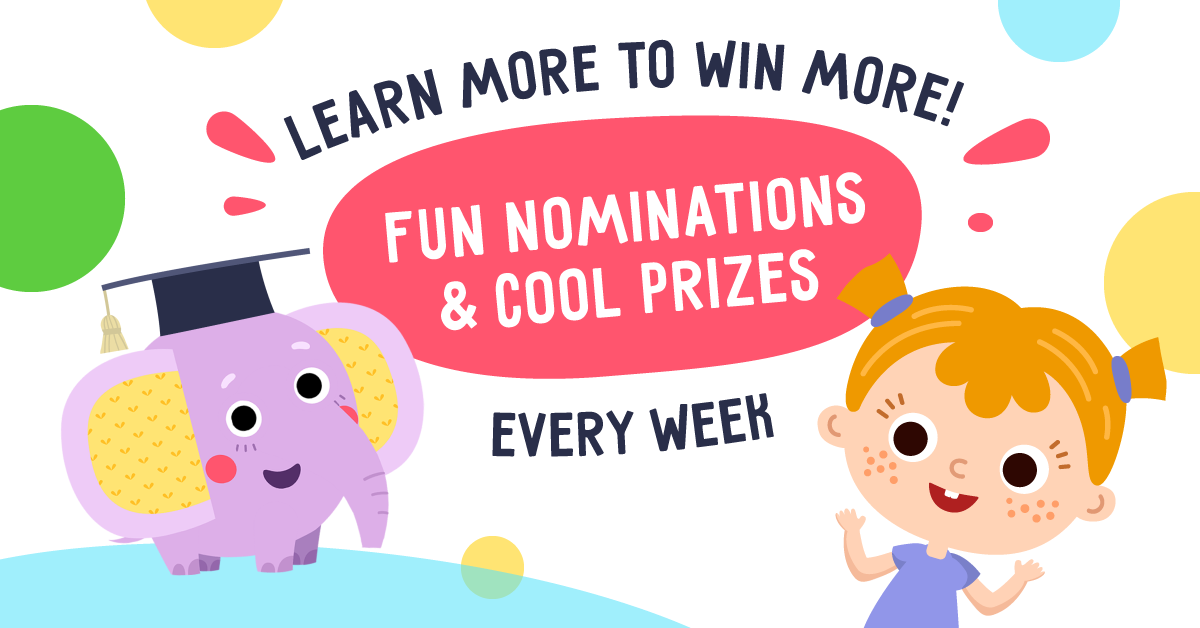Moral understanding Worksheets for Ages 7-8
6 filtered results
-
From - To
Explore our engaging Moral Understanding Worksheets tailored for children aged 7-8! These printable resources are designed to help young learners grasp essential moral concepts and develop their social-emotional skills. Through a variety of activities, children will navigate scenarios that foster empathy, respect, and responsibility. Our worksheets encourage critical thinking by prompting discussions on fairness, honesty, and kindness. Each activity is crafted to inspire reflective thinking while making learning fun! Perfect for both classroom use and home education, our Moral Understanding Worksheets empower kids to become compassionate individuals who contribute positively to their communities. Start your journey towards moral growth today!
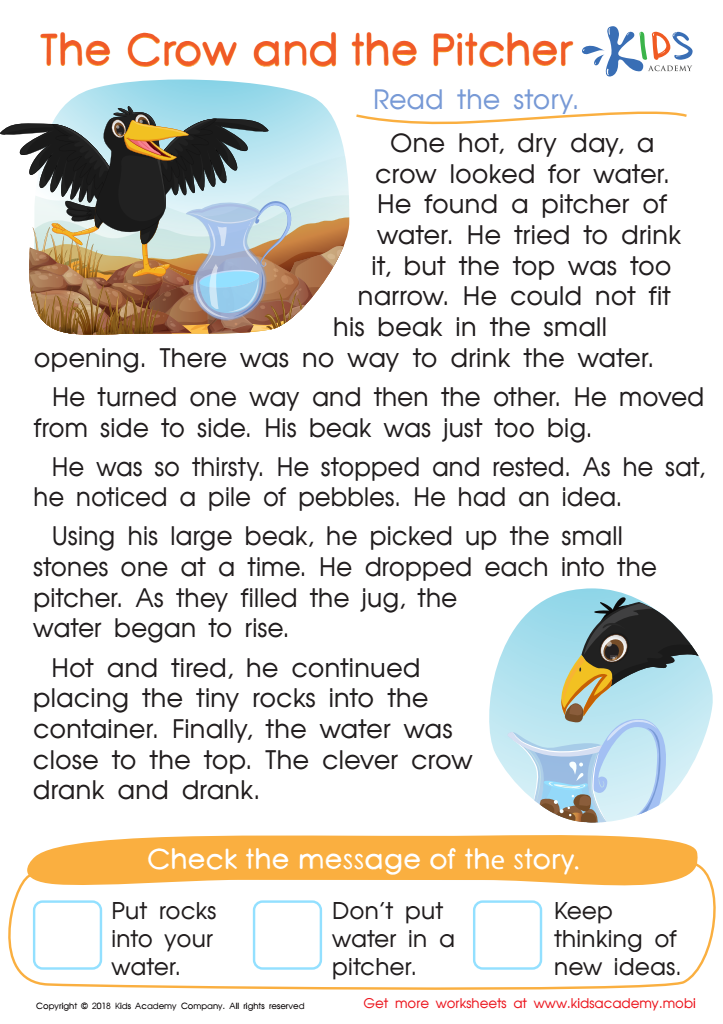

The Crow and the Pitcher Worksheet
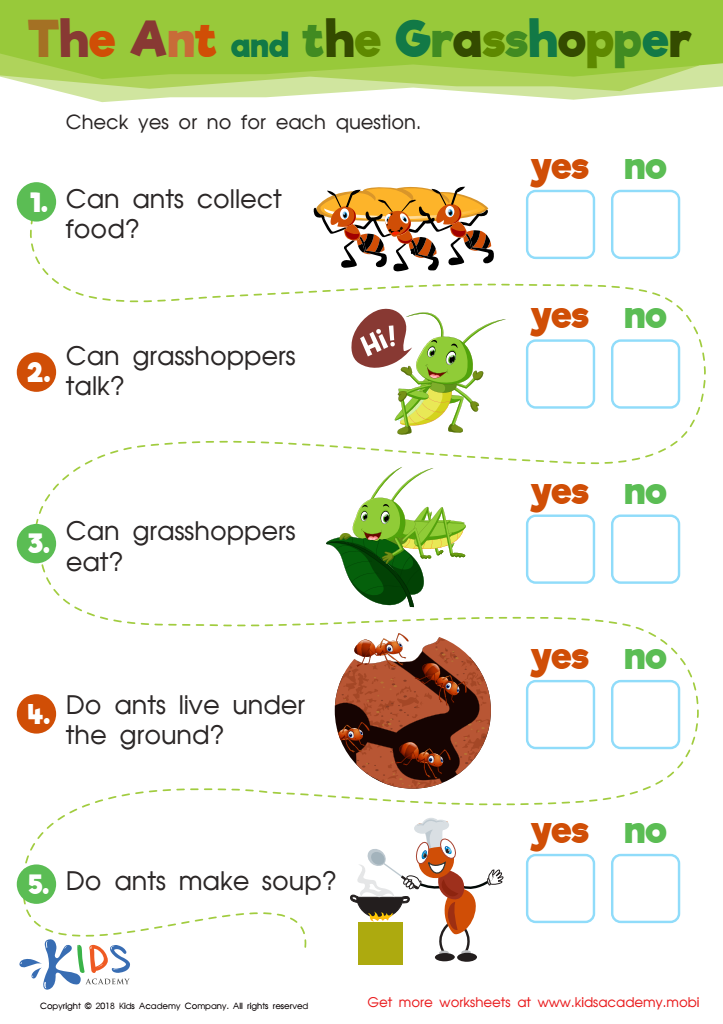

The Ant and The Grasshopper Worksheet
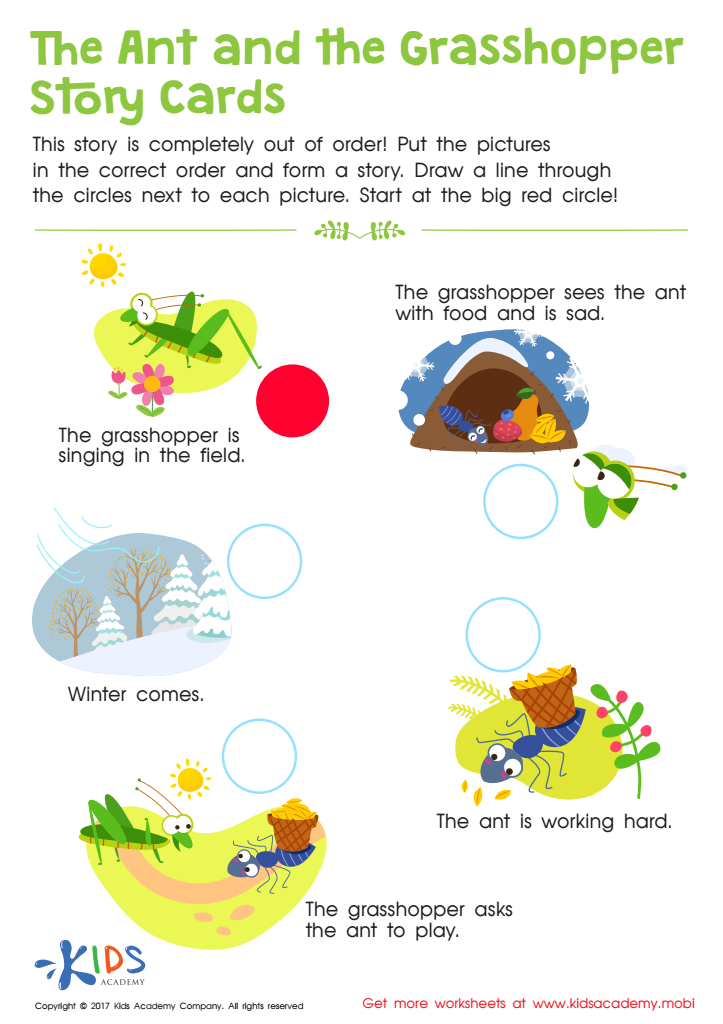

The Ant and The Grasshopper Worksheet
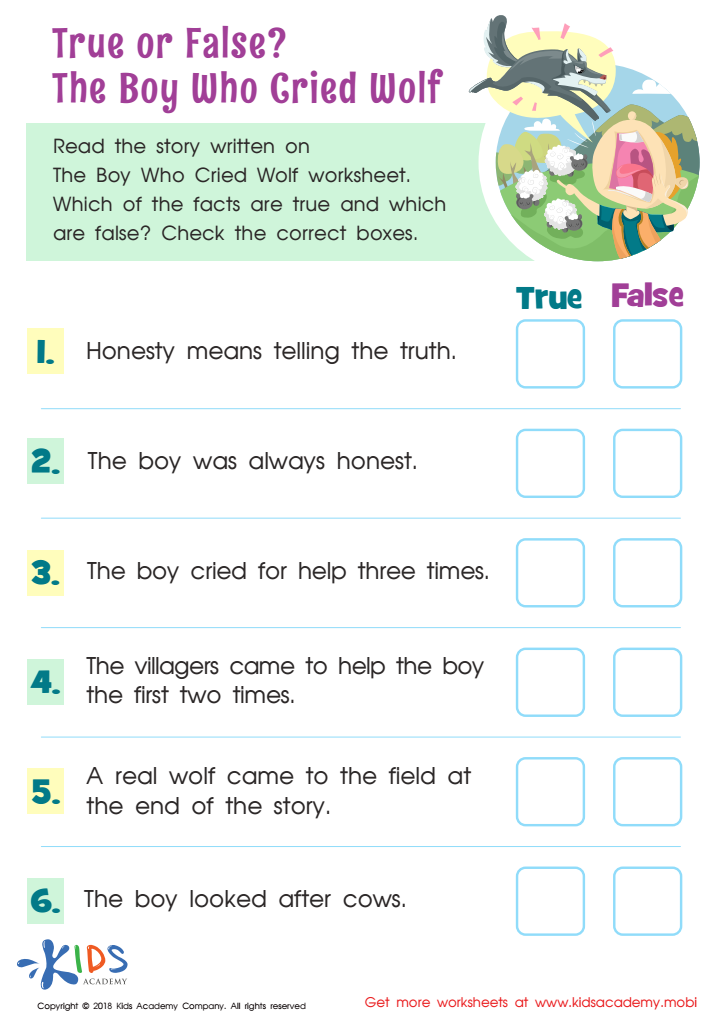

True or False? The Boy Who Cried Wolf Worksheet
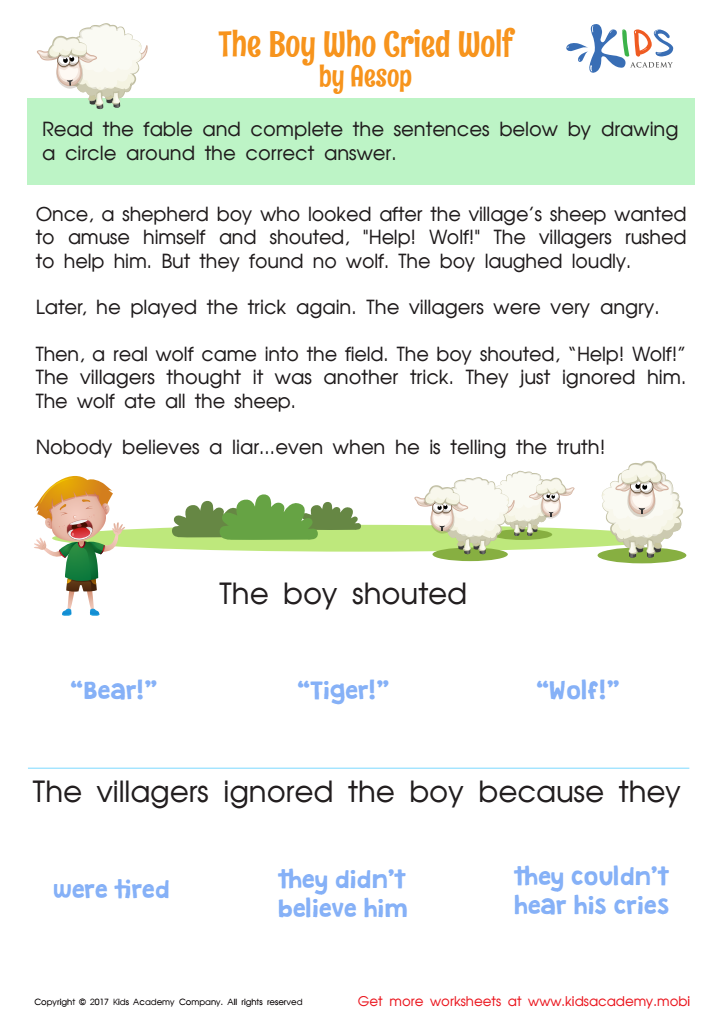

The Boy Who Cried Wolf Worksheet
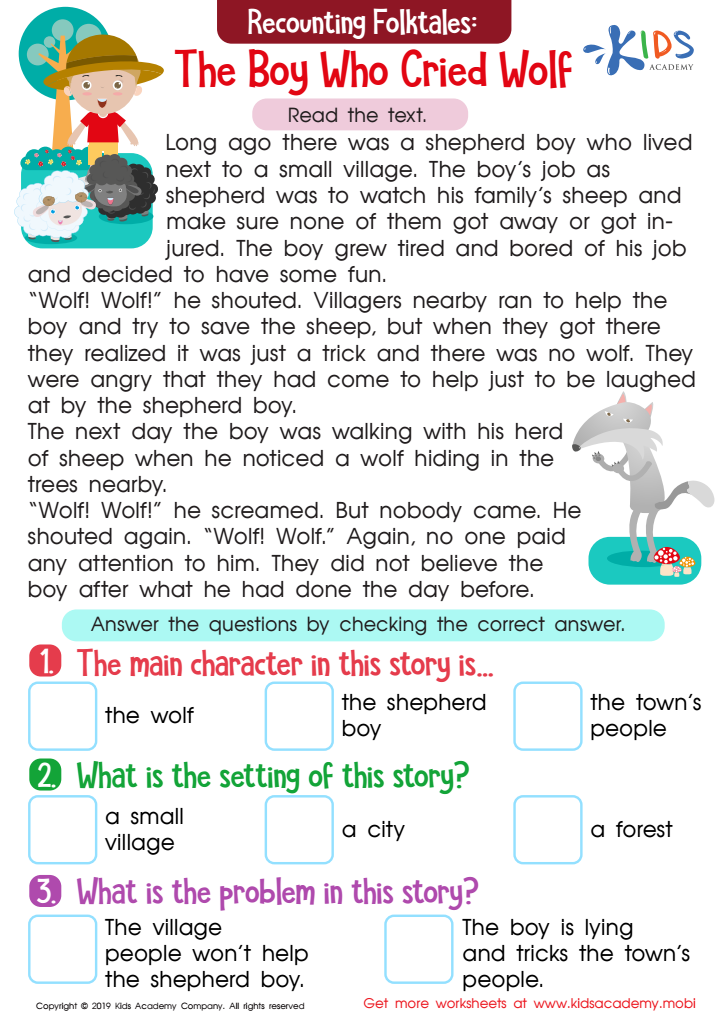

The Boy Who Cried Wolf Part 1 Worksheet
Moral understanding is crucial for children aged 7-8 as it lays the foundation for their social development and personal values. At this age, children are increasingly aware of the world around them and are learning to navigate complex social interactions. Encouraging moral understanding helps them differentiate between right and wrong and fosters empathy, kindness, and respect toward others.
Parents and teachers play an essential role in this process. They can create an environment rich in moral discussions and model ethical behavior. Helping children recognize the impact of their actions encourages accountability and enables them to understand how their decisions affect others. Furthermore, as they grow more independent, strong moral principles guide them in making choices that reflect their values.
Developing moral understanding also enhances conflict resolution skills. Children become adept at addressing disputes peacefully by empathizing with others’ feelings and recognizing shared solutions. Ultimately, nurturing this understanding in early education cultivates responsible and compassionate future citizens. As parents and teachers invest time in fostering moral development, they equip children with the tools necessary for healthy relationships, greater emotional intelligence, and a more cohesive society.
 Assign to My Students
Assign to My Students









